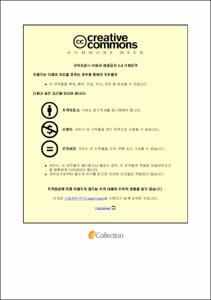교대근무 기혼 간호사의 양육스트레스, 일-가정 양립갈등이 삶의 질에 미치는 영향
- Abstract
- The Factors Affecting of Parenting Stress and Work-Family Imbalance Conflict on the Quality of Life in Married Nurses Working in Shifts
Yu Ri, Choi
Departments of Nursing
The Graduate School of Pukyong National University
(Directed by Prof. Gyoo Yeong Cho, Ph. D. in Nursing)
Purpose
The purpose of this study was to investigate the impact of parenting stress and work-family balance conflict on the quality of life for married nurses who perform shift work and have children. Factors were investigated to determine how to enhance their quality of life by maintaining work and family balance in harmony and minimizing career breaks, thereby supporting them so they offer good quality care to patients.
Method
Study subjects were 159 married nurses with children, who worked in one University hospital and five general hospitals located in B city, one university hospital and one general hospital located in U city, and one general hospital located in Y city. A questionnaire suitable for final analysis was distributed to the 159 subjects. The questionnaire consisted of 109 questions including 16 general characteristics questions; 36 questions that Lee, Chung, Park & Kim(2008) referred from PSI (Parenting Stress Index) developed by Abidin(1995) to develop and standardize the contracted version of K-PSI-SF (Korean Parenting Stress Index Short Form); 10 questions that Choi(2009) translated and re-translated, revised and supplemented from the work-family conflict and family-work conflict scales developed by Netemeyer & Boles(1996), and 47 quality of life scale questions that Ro(1988) developed.
The collected data were processed using SPSS Statistics 22. Methods used for the analysis were descriptive statistics, independent t-test, ANOVA, Pearson's correlation coefficient, and multiple regression.
Result
1. Parenting stress average was 2.45±0.48; parental distress was 3.07±0.53; parent-child dysfunctional interaction was 1.99±0.58; and difficult child was 2.30±0.61. Work-family balance conflict average was 3.08±0.53; sub-factor average of work-family conflict was 3.54±0.65 and family-work conflict 2.63±0.63. Quality of life average was 3.04±0.46; sub-factor average of emotional status was 3.17±0.66; economic life 2.86±0.48; self-esteem 3.16±0.52; physical state and function 2.74±0.56; neighbor relations 3.14±0.48; and family relations 3.38±0.54.
2. As a result of the comparison of quality of life differences by the subjects’ general characteristics, subjects who responded as ‘satisfied’ regarding the primary caregiver support satisfaction in child raising (F=13.946, p<.001) had better quality of life than those who responded ‘moderate’ and ‘dissatisfied’. subjects who responded as ‘moderate’ regarding the Co-worker support satisfaction (F=15.552, p<.001) had better quality of life than those who responded ‘satidfied’ and ‘dissatisfied’.
The quality of life of those who answered ‘no’ in regards to having considered resignation due to child raising issues(t=-3.677, p<.001) was better than those who answered ‘yes’.
The quality of life of nurses who had on average 1-3 night shifts/month(F=4.840, p<.01) had a better quality of life than those who had 4-6 times, or >7 times. Subjects who responded as ‘satisfied’ regarding the job satisfaction(F=20.433, p<.001) had better quality of life than those who responded ‘moderate’ and ‘dissatisfied’.
3. As a result of analyzing the relationship among parenting stress, work-family balance conflict, and quality of life; quality of life had a significant negative correlation with parenting stress(r=-0.639, p<.001) as well as work-family balance conflict(r=-0.557, p<.001). Parenting stress and work-family balance conflict had a significant positive correlation(r=0.544, p<.001).
4. The factors which impacted quality of life significantly were parenting stress(β=-0.367, p<.001), work-family balance conflict(β=-0.243, p<.001) and job satisfaction(β=0.146, p<.05). The explanation power based on a multiple regression analysis was 53%.
Job satisfaction had a significant positive effect on quality of life; parenting stress and work-family balance conflict had a significant negative effect on quality of life. Thus, it is possible to say that the more satisfactory the work life, the better the quality of life, and the more intense the parenting stress and work-family balance conflict, the worse the quality of life.
Keywords: Parenting stress, Work-family balance conflict, Quality of life, Married nurse, Shift-work.
- Issued Date
- 2018
- Awarded Date
- 2018. 8
- Type
- Dissertation
- Publisher
- 부경대학교
- Alternative Author(s)
- Choi Yu Ri
- Affiliation
- 부경대학교 대학원
- Department
- 대학원 간호학과
- Advisor
- 조규영
- Table Of Contents
- I. 서론 1
1. 연구의 필요성 1
2. 연구의 목적 6
3. 용어의 정의 6
II. 문헌고찰 9
1. 양육스트레스와 삶의 질 9
2. 일-가정 양립갈등과 삶의 질 12
III. 연구 방법 16
1. 연구 설계 16
2. 연구 대상자 16
3. 연구 도구 16
4. 자료 수집 방법 18
5. 윤리적 고려 19
6. 자료 분석 방법 19
IV. 연구 결과 21
1. 대상자의 일반적 특성과 직무관련 특성 21
2. 대상자의 양육스트레스, 일-가정 양립갈등 및 삶의 질 정도 25
3. 인구사회학적 특성에 다른 삶의 질 차이 27
1) 대상자의 일반적 특성에 따른 삶의 질 차이 27
2) 대상자의 직무관련 특성에 따른 삶의 질 차이 29
4. 양육스트레스, 일-가정 양립갈등 및 삶의 질 상관관계 31
5. 양육스트레스와 일-가정 양립갈등이 삶의 질에 미치는 영향 32
V. 논의 34
VI. 결론 및 제언 43
참고문헌 46
부록 63
[부록 1] 설명문 및 동의서 63
[부록 2] 설문지 65
[부록 3] IRB 심사결과통보서 75
[부록 4] 연구도구 승락서 77
- Degree
- Master
- Files in This Item:
-
-
Download
 교대근무 기혼 간호사의 양육스트레스, 일-가정 양립갈등이 삶의 질에 미치는 영향.pdf
기타 데이터 / 1.64 MB / Adobe PDF
교대근무 기혼 간호사의 양육스트레스, 일-가정 양립갈등이 삶의 질에 미치는 영향.pdf
기타 데이터 / 1.64 MB / Adobe PDF
-
Items in Repository are protected by copyright, with all rights reserved, unless otherwise indicated.